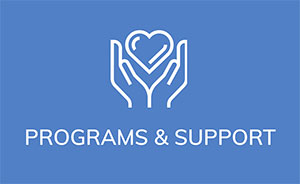Over the course of a year of monthly meetings, the CLL Bloodline will teach the BASICS needed to understand CLL, bring news, help with the acronyms and new vocabulary, and offer simple fun quizzes.
MONTHLY QUIZ: Chemo-immunotherapy (CIT), specifically FCR (fludarabine, cyclophosphamide, and rituximab), can give very long remissions that are starting to look like cures as frontline therapy for some CLL patients who:
- Are missing the short arm of chromosome 17, also known as deletion 17p.
- Have mutated IgHV.
- Have unmutated IgHV.
- We can’t predict who is more likely to respond to CIT.
Correct answer is #2. FCR has been proven the best CIT in CLL for young healthy patients. It has resulted in long remissions for some low-risk patients with mutated IgHV, and no other negative prognostic factors including no 17p or 11q deletions or mutated TP53. Sadly, only about 1 in 7 fits in this group. Over ½ with mutated IgHV treated with FCR had no CLL progression for > 13 years. And more recent reports show no new cases of progression or deaths up to five years after that. In fact, for healthy young patients with all the best prognostic factors, if FCR gets them to where there is no measurable disease (U-MRD or undetectable measurable or minimal residual disease), then they have an almost 80% chance of never needing more treatment. However, if one doesn’t fit into that low-risk group, outcomes are much worse. Testing for IgHV mutation, a simple blood test, should be mandatory for anyone considering FCR. Our motto is: TEST BEFORE TREAT™ but unfortunately it is often not done in community hematology practices. Also, FCR increases the risk of second cancers including MDS (myelodysplastic syndromes) that are very hard to treat.
NEWS:
Working with others, CLL Society has been successful in increasing the supply of Evusheld from 600,000 to 1,100,000 doses and restricting its use to the immune compromised. To find Evusheld near you, search on: https://healthdata.gov/Health/COVID-19-Public-Therapeutic-Locator/rxn6-qnx8/data
THE BASICS: What to do When First Diagnosed
CLL is usually slow growing or indolent giving you time to plan. Don’t neglect your routine preventive care, especially age and gender appropriate cancer screening such as PAPs, mammography, PSA, colon cancer screening and especially skin checks, as CLL increases the risk of many secondary cancers, including skin cancer. Stay up to date with vaccinations and get the annual flu shot, but avoid live vaccines such as yellow fever or MMR as they are not known to be safe in CLL. Most importantly, put together your treatment team (get help at the CLL Society’s online toolkit), join a support group, and frontload your knowledge about your disease.
WORD/ACRONYM OF THE MONTH: Lymphocytes
Lymphocytes are white blood cells. There are three types: B lymphocytes or cells, T cells, and natural killer (NK) cells. CLL is a cancer of the B cells. Normal B cells mature into plasma cells that make antibodies, part of the liquid or humeral immune system, T cells are soldiers in our cellular immune system and direct or do the killing themselves, and NK cells are part of our nonspecific innate immune system. Unlike T cells, NK cells don’t need to be primed to kill virally infected or cancer cells. Quite the team! CLL is a cancer of the immune system which explains our risk from infections and second cancers.

















